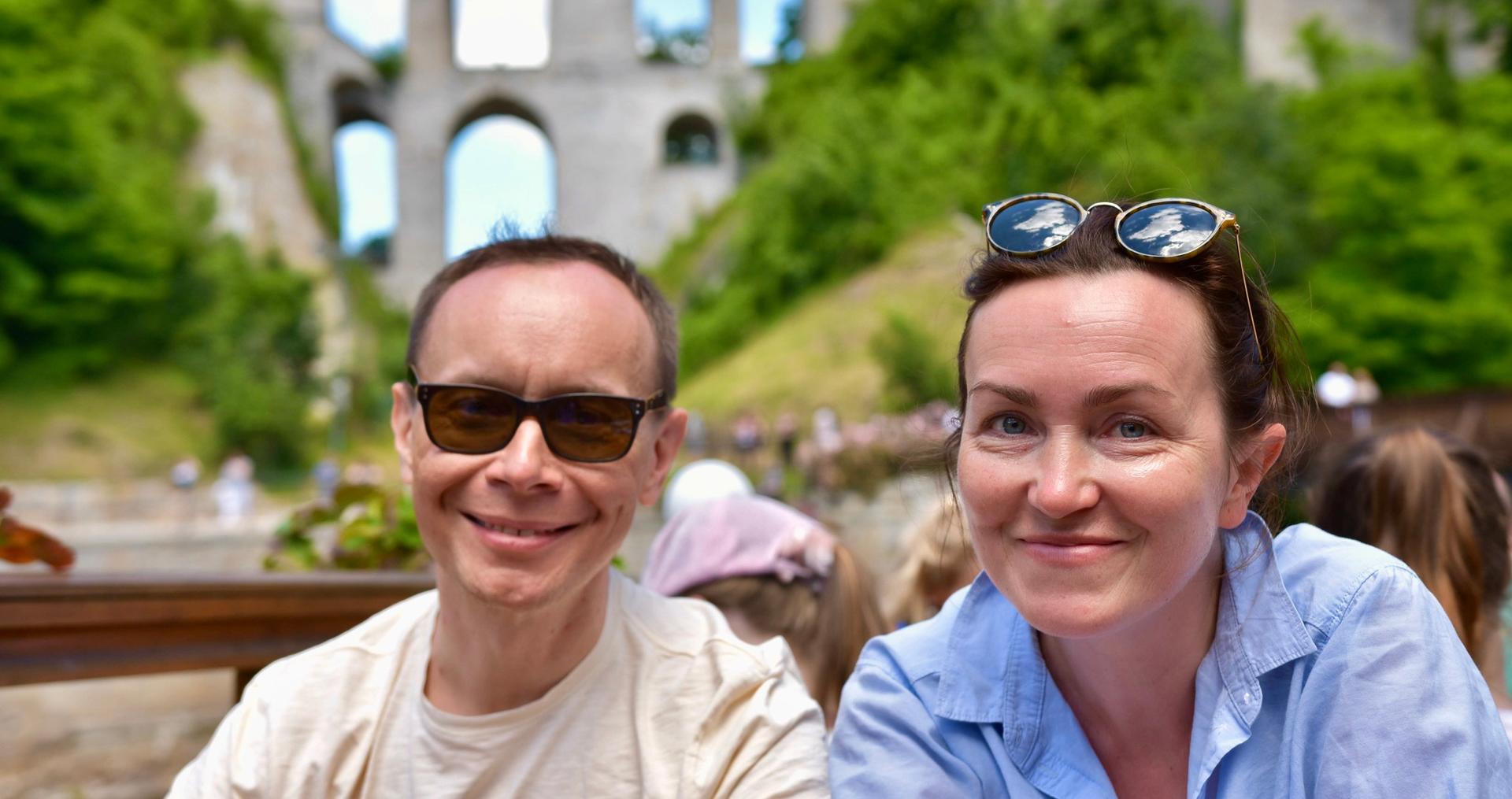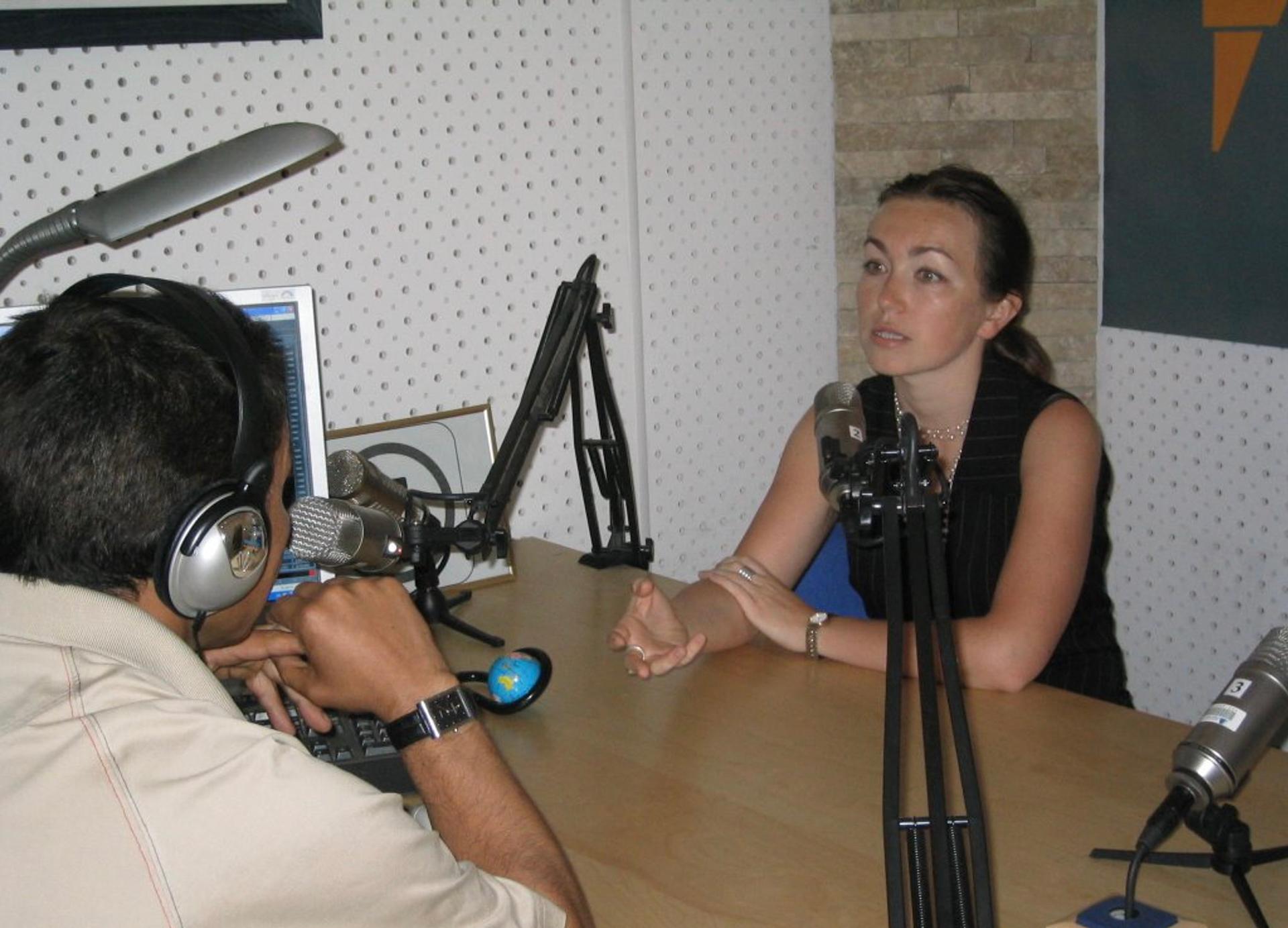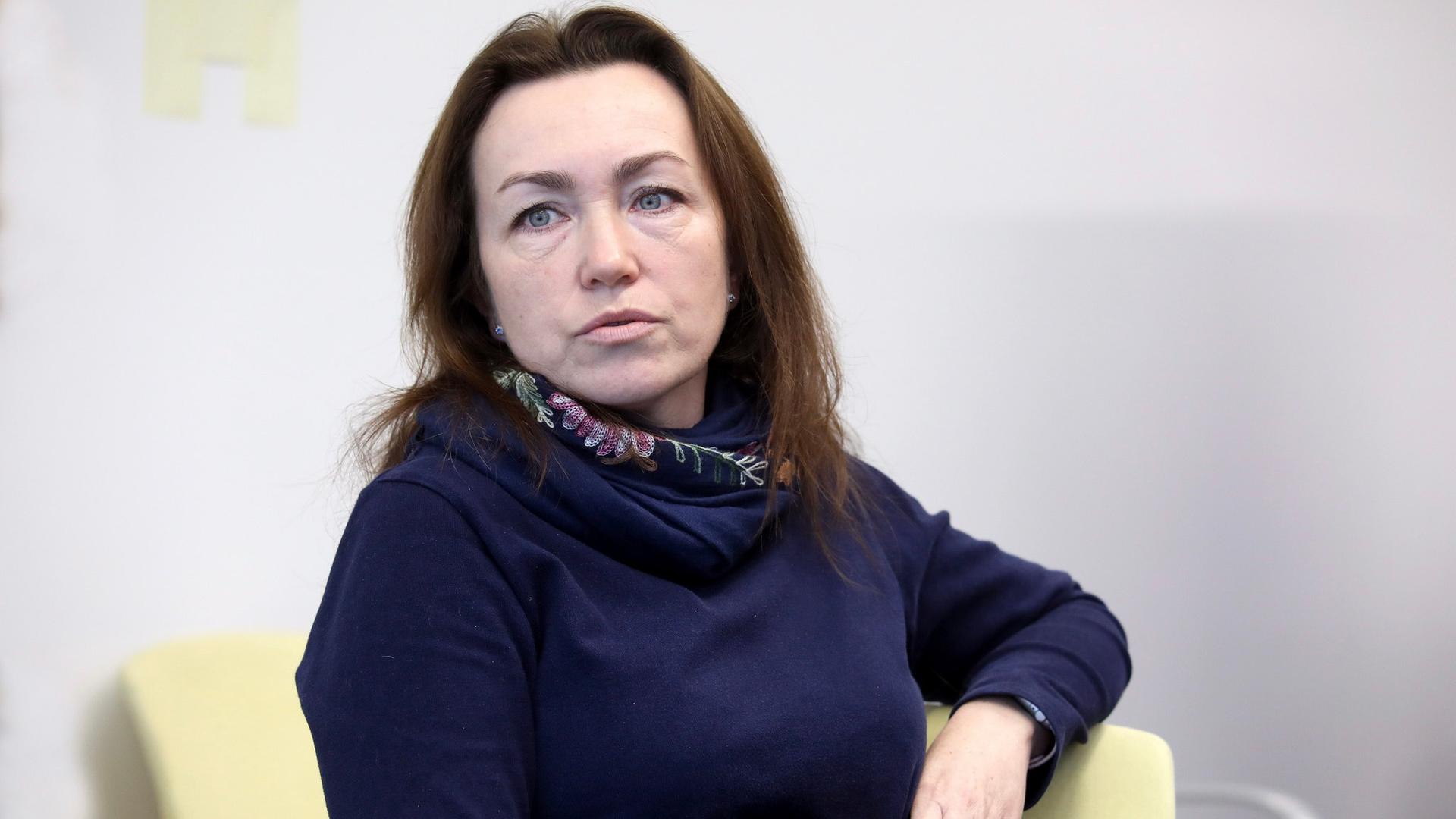Alsu Kurmasheva traveled to Russia in May for family reasons — she was visiting her ailing mother.
It was supposed to be a short trip. Just two weeks in Russia, and then she would return to her family in Prague, in the Czech Republic.
But that’s not how things went.
When boarding a plane for her return flight, “the authorities seized her passports — her American passport and her Russian passport — and they also confiscated her telephone. She was interrogated for a few hours,” said Pavel Butorin, Alsu Kurmasheva’s husband.
He said that she was released, but the officials held on to her passports, so she could not leave the country.
She was charged with not reporting her American citizenship to Russian authorities.
Then, on Oct. 18, things got worse.
“Police came to her mother’s house and arrested her and, this time, she was charged with failing to register as a so-called foreign agent,” Butorin said.
In Russia, the foreign agent law requires anyone who receives support from outside Russia, including money for their job, to declare themselves as “foreign agents.”
However, the state uses this law to persecute individuals and organizations in Russia on political grounds.
Last week, a judge extended Kurmasheva’s pre-trial detention until February 2024.
“We believe the court is biased in choosing a preventive measure because this is a non-violent crime. At the very least, the position of the Supreme Court suggests that those accused of such a crime should not be held in custody,” Kurmasheva’s attorney, Rim Sabirov, recently spoke before the court.
In Washington, the State Department has yet to designate Kurmasheva as a “wrongfully detained person,” but it will likely do so.
Such a designation would elevate the status of her case and give the government more tools to negotiate for her release.
“We very much care about her case; we care about her,” said State Department spokesperson Matthew Miller. “We care about the safety and security of every American overseas. We are following the case closely. We remain deeply concerned about the extension of her pre-trial detention.”
But perhaps no one is more concerned about Kurmasheva’s detention than her husband, Pavel Butorin.

“Every day, I get up, you know, [go] through the day, and when I go to bed, I only think about one thing: Am I helping Alsu enough? Am I doing enough for her release?” he said.
Butorin said that his wife has yet to receive consular access and that Russian authorities have rejected multiple requests.
He is also thinking about the conditions of Kurmasheva’s detention.
“It’s quite cold now in Kazan. In general, I think it’s fair to assume it’s cold in her cell,” Butorin said. “We know that sometimes these pre-trial detention facilities get overcrowded. She is being held by a penitentiary system notorious for its mistreatment of political prisoners.”
He said she’s highly respected as a journalist, especially among Tatars, the largest ethnic minority in Russia.

“Her work for the Tatar-Bashkir Service for Radio Free Europe is a lot more than just a job for her; it’s her lifetime commitment to her culture and language,” said Butorin.
Kurmasheva was a voice for minority rights in Russia, and she would host many programs in the Tatar language. But also on occasion in Russian and English.
Butorin said he can only speculate why his wife was detained, but he believes her being a journalist and a US citizen are part of the story.
“That gives me reason to think that it was intentional, that she is targeted as an American citizen,” he said. “Whether or not she is considered as a possible token for a swap of some kind, I don’t know, but it’s not entirely impossible.”
According to a report released today by the International Federation of Journalists, Kurmasheva is one of nearly 400 journalists being held in prison around the world.
And in Russia, multiple US citizens have been detained based on trumped-up charges of espionage.
Butorin said that this has been a difficult time for their family.
“She is the mother of two young daughters, who love her very much, who miss her very much, and not one wants to grow up to be the children of a political prisoner. This is not something you want to have in your life, as noble as it may sound.”
